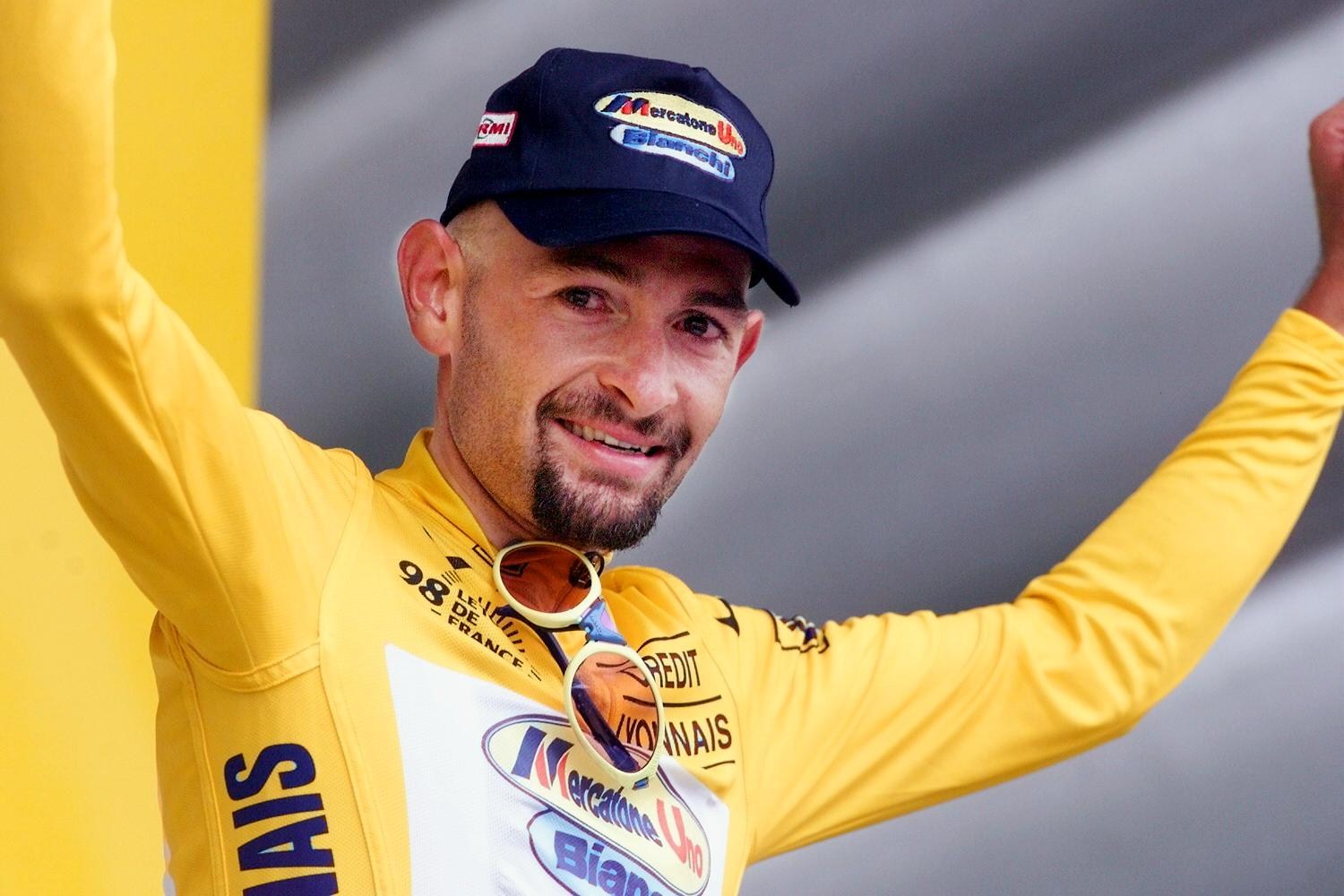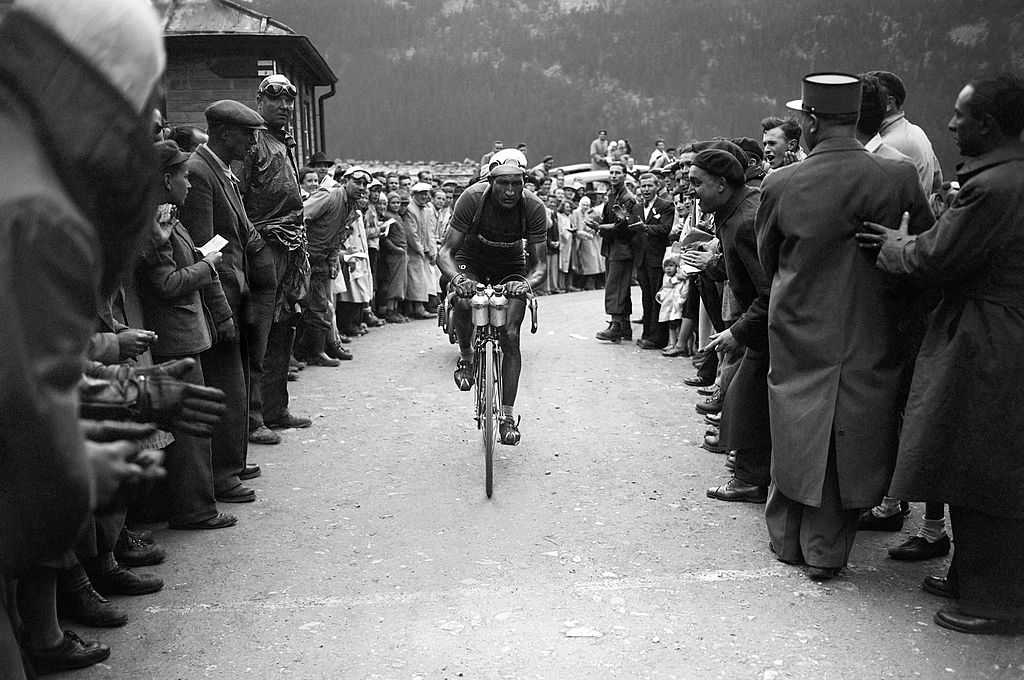
It is 26 years since Marco Pantani won the Tour de France and 20 years since his tragic death, yet the Italian climber remains one of the most celebrated but also controversial riders in the long history of the race.
Pantani is just one of seven Italians to have won the Tour de France and he completed a rare Giro-Tour double in 1998, just as Tadej Pogačar is trying to do this year.
The world of professional cycling has changed massively since Pantani lit up the Tour de France with attacks in the high mountains, making a spectacular debut in 1994 and then winning in Paris in 1998 after the Festina doping scandal almost ended that year’s race.
Pantani was the best out-and-out climber in the peloton at the time and one of the most enigmatic figures of all in the EPO-fuelled nineties. He was fragile and human, but also defiant and determined.
Depending on how you see the EPO era, Pantani was either a hero or a villain, creating some of the great memories of the sport in the high mountains or casting a long shadow of deceit and omertà that remains even today. He made cycling hugely popular in Italy, but then along with so many others, he left it damaged for a generation.
Tour de France organisers ASO were grateful that Pantani helped ensure the 1998 race reached Paris but then they turned against him after he was disqualified from the 1999 Giro d’Italia after his high haematocrit test. Now, with the Tour starting in Italy and with the three Italian regions visited by the race paying a reported fee of €10 million, ASO have returned to remember Pantani with affection.
As always, the Tour’s past, present and future are intertwined, heightening the mythical aspects of the race and driving its economics.
Richard Virenque recently carried the Paris Olympic torch in France, Laurent Jalabert is again commentating on the Tour for French television and Jan Ullrich has been welcomed back to the sport after he fully confessed to doping.
The Tour de France arguably reflects life and humanity. Forgiveness for former sins can happen, as the racing of the past is remembered. Only Lance Armstrong remains ostracised from the Tour, but that is a role the Texan seems to like to play.
The historic Italian connotations of this year’s Tour de France Grand Départ are especially strong and emotive for the Italian tifosi. The race remembers all the greats and former winners from Ottavio Bottecchia to Vincenzo Nibali, but Pantani’s name will fill the roadside banners and his name will be the most painted on the road.
Saturday's opening stage will finish in Rimini, where Pantani died of a cocaine overdose in 2004, while stage 2 will start in his hometown of Cesenatico. It will go past the museum that remembers him and near the cemetery where he is buried.
Pantani had a glorious if difficult relationship with the Tour de France, but he will not be forgotten.

Italian Tour de France winners
In the 110 editions of the Tour de France, Italian riders have won 269 stages and 28 have worn the yellow jersey but only seven riders have secured overall success for a total of ten victories.
Ottavio Bottecchia was the first in 1925 and Vincenzo Nibali was the last, exactly a decade ago in 2014. Fabiana Luperini also won three editions of the Tour Cycliste Féminin, the precursor to the current Tour de France Femmes, in 1995, 1996, and 1997.
Rodolfo Muller from the Tuscan port of Livorno was the only Italian to ride in the first edition of the Tour in 1903 and he went on to finish fourth overall. He also carried out vital pre-race reconnaissance of the 2,500 km race route by bike and motorbike to study the conditions of the dirt road, calculate stage times and even check for wild dogs and protesting locals.
Bottecchia was the first rider to wear the Tour leader yellow jersey from start to finish and he won a second Tour in 1925. He died just three years later, with suspicions that he was killed while out training because he was openly against fascist leader Benito Mussolini.
Tuscany’s Gino Bartali won the Tour de France in 1938 and then in 1948, his victories even more remarkable as they were separated by World War II. His battles with Fausto Coppi were legendary but his 1948 win was of national importance in Italy. Such was the interest in Bartali’s success in France that it may have helped to avoid the outbreak of a civil war in Italy after leading leftwing politician Palmiro Togliatti was shot.
Coppi won the Tour de France in 1949 and then again 1952. His solo attacks are legendary and he won by 28 minutes and 17 seconds in 1952, which remains the biggest ever margin for a post-war Tour winner. Stage 3 of this year’s race passes through Coppi’s training roads, with the climb to Tortona named as the fourth category Côte de Tortone Fausto Coppi.
Gastone Nencini won the 1960 Tour de France. He is often described as the forgotten great of Italian Grand Tour racing, but he also won the 1957 Giro d’Italia. Nencini was from Mugello in the hills above Florence and was a renowned descender but also an astute racer.
Felice Gimondi won the 1965 Tour de France on his debut after a late call-up for the race. He would go on to clash with Eddy Merckx but his victory in France confirmed his place as one of the greats of Italian cycling.
Pantani won in 1998 after losing significant time in the opening Dublin time trial and even more on stage 7's race against the clock in Correze. When the Festina Affair sparked police raids and arrests, Pantani kept his nerve and famously attacked Jan Ullrich on the Galibier in the rain to take control of the race at Les Deux Alpes.
Nibali won in 2014 after winning stage 2 in Yorkshire and then dominating on the Paris-Roubaix cobbled stage. He wore the yellow jersey for 20 days, with Jean-Christophe Peraud and Thibaut Pinot finishing more than seven minutes down in the final GC.
Italians have struggled to fight for overall victory since, with Italian cycling suffering a marked downturn. There are no Italian teams in the WorldTour and none in the 2024 Tour de France. Only eight Italian riders will start this year’s race, compared to 33 in 2000. Alberto Bettiol is the only Tuscan rider in the field, and he will fly the flag for Italy by wearing the Italian national champion’s ‘tricolore’ jersey.
For better or for worse, the 2024 Tour de France Grand Départ in Italy will remember the former legends of Italian cycling, glossing over their often tragic past, all the while hoping the whole event can inspire a new generation of Italian cyclists.
Get unlimited access to all of our coverage of the Tour de France - including journalists reporting, breaking news and analysis on the ground from every stage of the race as it happens and more. Find out more.







